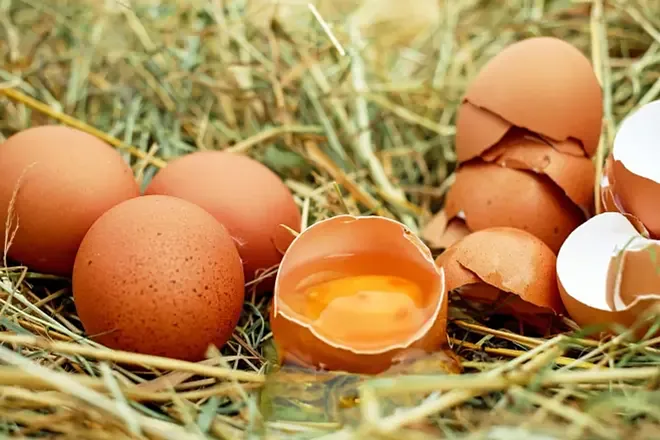Food myths are sneaky. They feel wise because they’ve been repeated—sometimes by the wellness industry, sometimes by Grandma’s logic, sometimes because they were once grounded in a single study that got popularized and never questioned again. Trouble is, they make you cut out good stuff, chase expensive fixes, or believe that timing matters more than balance.

Let’s lay those myths out, challenge them with science and expert voices, and give you practical meal ideas and real-world guidance. No fluff. Just the solid stuff your body actually needs—and what experts genuinely recommend.
| Myth | Reality | Quick Take |
|---|---|---|
| Fats = bad | Healthy fats help hormones, vitamins; calories matter most | Use olive oil, nuts; skip trans fat |
| Eggs raise cholesterol | Most healthy people aren’t impacted by moderate egg intake | Eat eggs regularly unless medically restricted |
| Carbs make you fat | Brain needs carbs; choose quality over quantity | Prioritize whole grains, legumes |
| Detox diets detox | Liver and kidneys do the job; cleanses are mostly marketing | Hydrate, eat fiber, skip cleanse fads |
| Eating late makes you gain | Total calories matter more than time; overeating late can harm some | Plan satisfying evening snacks |
| Protein damages kidneys | No for healthy people; yes if kidneys are already compromised | Spread decent protein across meals |
| Frozen veggies are inferior | Often more nutritious—flash-frozen soon after harvest | Keep frozen veg for convenience |
| All sugar is bad | Added is the issue; natural sugar comes with good stuff | Favor whole fruits over added sugars |
1. Fats: Good, Bad, and Everything in Between
The myth: Fats will make you fat.
The reality: Not all fats are equal. Unsaturated fats—think olive oil, nuts, seeds, fatty fish—support hormone regulation, vitamin absorption, and energy.
Expert word: The American Heart Association urges, “replace unhealthy fats with unsaturated fats”
Why it matters: Your body needs fat to absorb fat-soluble vitamins (A, D, E, K). It keeps your hormones working right and gives you slow-burning energy. What’s actually fattening is too much of anything—especially trans fats and empty calories.
How to incorporate it:
- Switch butter for olive oil in cooking.
- Snack on a handful of almonds.
- Eat fatty fish (like salmon or sardines) a couple of times a week.
Example day:
- Breakfast: Oatmeal with berries + a sprinkle of walnuts
- Lunch: Avocado and quinoa salad with olive oil dressing
- Snack: Handful of pistachios when hunger hits
2. Eggs and Cholesterol: The Truth
The myth: Eggs jack up your cholesterol.
The reality: For most healthy people, moderate egg intake doesn’t significantly alter cholesterol levels—and they’re nutrient powerhouses.
Expert word: According to a nutrition researcher, “moderate egg consumption has little effect on blood cholesterol.” Clear and brief.
Why eggs matter: They’re packed with high-quality protein, essential vitamins like D and B12, and minerals.
How to use them:
- Scramble your eggs into veggies for breakfast.
- Add them to soups or grain bowls.
Tip: If you’re concerned about cholesterol—due to personal health or family history—check it with your doc after a few weeks of including eggs.
3. Carbs: Myths vs. Reality
The myth: Carbs are the enemy.
The reality: Carbs fuel your brain, muscles, and mood. What matters is quality and quantity.
Expert word: A dietitian puts it “complex carbs support performance and control hunger”
Why quality matters: Whole grains, legumes, fruits, and starchy vegetables digest slowly, keeping you full and energized. Refined carbs lead to quick spikes, crashes, and overeating.
How to sharpen your choices:
- Swap white rice for brown or wild rice.
- Have fruit instead of candy.
- Pair carbs with protein or fat for better satiety.
Example meals:
- Brown rice bowl with black beans and grilled veggies
- Whole-grain toast topped with mashed avocado and a poached egg
4. Detox Diets: More Sizzle Than Substance
The myth: Detoxes reset your body, cleanse your system.
The reality: Your liver and kidneys are doing that already. “Most detox programs lack reliable evidence,” says a physician specializing in nutrition.
What’s really going on: Often detoxes cause short-lived weight changes through water loss or extreme calorie restriction. Anecdotal and not sustainable.
Better path:
- Drink water consistently.
- Eat fiber via fruits, veggies, and whole grains.
- Skip buying exotic “detox” teas or supplements — many are neither regulated nor necessary.
Tip sheet:
- Strive for 25–30 g fiber per day.
- Avoid extreme cleanses for longer than a day or two to avoid nutrient depletion.
5. Night Eating: Timing vs. Totals
The myth: Eating after 8 p.m. automatically makes you fat.
The reality: Weight gain is more about calories and food quality than clock hands. Still, late-night eating can tip the scale if it’s irregular or poor-quality.
Expert word: A nutritional epidemiologist notes, “it’s total daily energy intake—not meal timing—that matters most.”
Practical angle: If you find you binge at night, try earlier dinner or more satisfying evening snacks.
Example evening options:
- Cottage cheese with fruit
- Whole-grain toast with hummus and cucumber
6. Protein and Kidneys: The Real Scoop
The myth: Protein harms your kidneys.
The reality: In healthy individuals, this is false. Only those with existing kidney issues need to moderate.
Expert word: A renal dietitian says, “proteins support muscle and are safe unless kidney damage exists.”
How to give your body smart protein:
- Aim for 0.8–1.2 grams per kg of body weight if active.
- Distribute across meals rather than dousing one in a single sitting.
Smart snacks:
- Greek yogurt with berries
- Hummus dipped in veggie sticks
7. Frozen vs. Fresh Vegetables
The myth: Frozen produce isn’t as nutritious as fresh.
The reality: Often, flash-frozen vegetables retain nutrients better than fresh produce that’s spent days in transport.
Expert word: A food scientist notes, “flash-freezing locks in vitamins that fresh veggies can lose over time.”
Why it works: Frozen produce is picked at peak ripeness and frozen immediately. Fresh produce may lose properties during shipping or sitting on shelves.
Ways to use frozen veggies:
- Toss them into soups, stir-fries, or omelettes.
- Use frozen spinach for quick sautéed sides.
8. All Sugar Is Bad — Not Quite
The myth: Sugar in any form is harmful.
The reality: Added sugar is the problem—empty calories without nutrients. Natural sugar in fruit comes with fiber, vitamins, and antioxidants.
Expert word: A diet expert says, “natural sugars in whole fruits are nutritionally rich, unlike added sugars.”
Smart swaps:
- Drink seltzer with lemon instead of soda.
- Choose fruit or dark chocolate instead of candy.
Tip: Read labels—“added sugars” show how much “free” sugar you’re getting, versus what occurs naturally.
Action Steps: What You Can Do
- Pick one myth to test. Try embracing the opposite for a week (“eat healthy fats”) and notice changes in energy, hunger, or performance.
- Track what matters. Weight can trick you. Watch how you feel during workouts, sleep quality, mood.
- Add whole foods, one by one. Focus on lean proteins, quality carbs, healthy fats, and vegetables.
- Moderate—don’t eliminate. If a myth said a food is “bad,” give yourself permission to reintroduce it thoughtfully.
- Freeze smart. Keep hands-on-free access to veggies, fish, or fruit.
- Beware marketing. If something claims to “detox” or “melt fat fast,” check for real studies before trusting it.
- Ask if you need to ask. Conditions like heart disease or kidney issues change the game. Talk to a registered dietitian or physician if that’s you.
It sounds like a lot, but the core takeaway is simple: Food isn’t a villain. Your body thrives on balance, variety, and consistency. Dropping myths doesn’t mean adding rules. It means giving yourself back some curves and mess—the stuff that makes this thing called life actually feel good.






